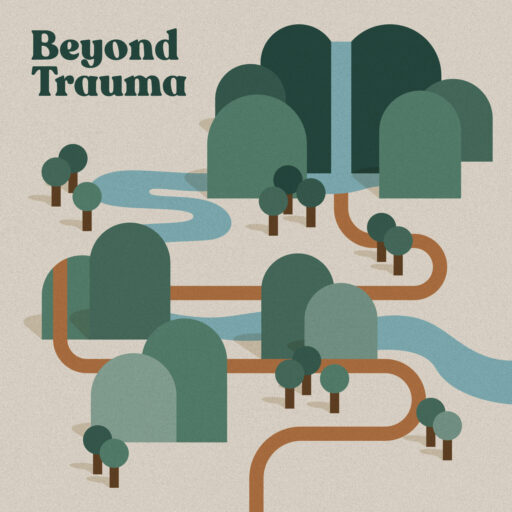Episode 16: Whole Brain, Whole Body

In this episode, we take the information from previous episodes on the triune brain and the two hemispheres and look beyond the brain by discussing the nervous system as a whole.
In our culture, we tend to place a division between our mind and our bodies.
- Tend to think mental health therapist for depression and a physician for chronic stomach issues.
- We are interconnected humans; our brains and bodies are connected. (whole brain, whole body)
- We tend to treat our issues either physiologically or psychologically, but not holistically.
- Our physiology doesn’t differentiate between physical threats and psychological threats.
- The inflammatory response can be caused from psychological distress.
Our vehicle is our autonomic nervous system
- Whether we need to fight/flight or freeze, this all happens through our autonomic nervous system.
- The gasoline that fuels our vehicle is like the chemicals in our bodies.
Most of us who have chronic health issues have sought solutions without success.
- There is a connection between health issues are our emotional traumas of the past.
- Most physicians take a different approach that solely looks at the presenting biological issues.
- When stress levels have a chance to subside, we can begin to see positive changes in our physical and mental health.
- The fallacy that “Mood=Brain”
Connections between our gut microbiome and our mood (anxiety & depression):
- Taking probiotics, prebiotics, fermented foods etc.
- When our gut is healthy, it can do wonderful things for our mood.
- Types of food and our children’s behavioral reactions
- Lastly, we need to pause and ask ourselves “how is my body feeling today?”
We are accustomed to stress:
- We live in a stress-demanding society
- Ex: 10 years of a stressful marriage with an alcoholic
- As time passes, this becomes the norm for your mind and body.
- Sometimes, we don’t realize how much toll is taken on our bodies from prolonged stressful situations.
- We need to begin to recognize how our culture, lifestyle etc. can negatively impact our bodies.
- We need to learn to find the association between chronic health issues and stress.
- So, be compassionate to your stress response; this helps de-shame your experience.
Recap on Right Brain Left Brain Hemisphere episode:
- Haven’t heard this episode? Check it out!
- Our left hemisphere is for procedural work and organization.
- Our right hemisphere is very concerned with the body.
- In our culture, we tend to favor and the left and neglect the right.
We don’t activate our relaxation response enough.
- This is not to say that we don’t need stress or a stress response.
- We need more of a balance between our stress response and our relaxation response.
- The tissue damage that needs repairing or inflammatory response needs relaxation for healing.
- Memory and learning require relaxation to reach our fullest capabilities
What’s one takeaway to give to clients about the whole brain, whole body connection?
- First, we can suggest our clients to get back into their bodies. Take a warm shower and notice what your body feels.
- Secondly, encourage experimentation to build a relationship with our bodies. What activates a client is unique for them.
- Lastly, notice how their bodies feel in transition between tasks throughout the day. Help them become aware of the flow of their body through the transitions of activation. Once we become aware, we can begin to choose.



